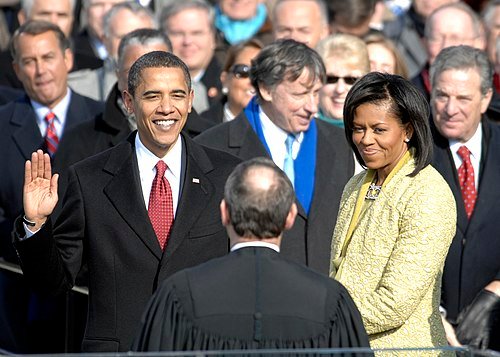In his 2009 inaugural speech, a young President Obama spoke with the wisdom of a seasoned leader. He reminded the world that while measurable data can guide decisions, effective leadership requires balancing those insights with an understanding of the intangible, less measurable aspects of life. This lesson feels all the more urgent today, as the intense focus on data and AI risks tilting leadership away from engaging with all the nuanced and subtle layers of the human experience.
The relevant passage from Obama’s speech
“That we are in the midst of crisis is now well understood. Our nation is at war against a far-reaching network of violence and hatred. Our economy is badly weakened, a consequence of greed and irresponsibility on the part of some, but also our collective failure to make hard choices and prepare the nation for a new age. Homes have been lost, jobs shed, businesses shuttered. Our health care is too costly, our schools fail too many — and each day brings further evidence that the ways we use energy strengthen our adversaries and threaten our planet.
These are the indicators of crisis, subject to data and statistics. Less measurable, but no less profound, is a sapping of confidence across our land; a nagging fear that America’s decline is inevitable, that the next generation must lower its sights.
Today I say to you that the challenges we face are real. They are serious and they are many. They will not be met easily or in a short span of time. But know this America: They will be met.”
Traversing both worlds
The key lesson is that effective leadership is the art of traversing the measurable and the intangible worlds. In the measurable world, we encounter data points such as indicators of homes lost, jobs shed, and health care costs. This is a data-driven, dashboard-obsessed, AI-propelled world. Obama masterfully acknowledges the gravity of measurable challenges, not just as indicators of crisis, but as reflections of a deeper impact on the human condition.
In the intangible world, we encounter emotions such as confidence, fear, and hope. Here, Obama amplifies the condition that exists in the measurable world by weaving intangible emotions into his narrative, such as a ‘sapping of confidence’ and a ‘nagging fear’.
Of course, good quality data is incredibly important and undeniably powerful. Navigational instruments such as dashboards are essential in the measurable world as they help leverage data and AI to design meaningful objectives, craft compelling data stories, and evaluate progress. Good public examples of such instruments include the Fulfilment by Amazon dashboard and the YouTube Studio dashboard. Though such instruments are essential in illuminating important parts of the human experience, effective leadership cannot stop here.
It’s important to go beyond the numbers and look past the dashboard. To traverse both worlds, leaders must grasp the intangibles, addressing the emotions and values that metrics can only hint at. Rory Sutherland, in one of his typically captivating talks, referenced David Rock’s SCARF model and said, “here are five things we don’t currently have metrics for, which humans really really care about – status, certainty, autonomy, relatedness and fairness.” As Sutherland rightly points out, we care deeply about these emotions, however imperfectly they are measured. So, they must be considered as important in shaping our decisions as the most detailed graphs and pie charts found in the most sophisticated dashboards. As Obama so aptly puts it, effective leaders must embrace what is “less measurable, but no less profound.”
A lesson from Marc Benioff
During the early days of the COVID-19 pandemic, Salesforce CEO Marc Benioff pledged that Salesforce would not conduct any significant layoffs for at least 90 days. He also committed to continuing to pay hourly workers, even while offices were closed due to social distancing measures.
More than just a company pledge, Benioff actively encouraged other business leaders and CEOs to follow suit and make a similar “no layoff pledge” for 90 days. He used the Hawaiian concept of ‘Ohana’ (family) to underscore the company’s commitment to its employees and encouraged his staff to also support their personal hourly workers, like housekeepers and dog walkers.
Benioff demonstrated how to traverse the intangible world, recognising and responding to his employees’ emotions of fear and job security.
‘less measurable, but no less profound’
The art of leadership, as Obama exemplifies, lies in the ability to articulate and transform the human experience by moving fluidly across both worlds. In today’s era of data and AI, it’s all too easy to become overly attached to the measurable world, on data, metrics, and dashboards. Leaders like Obama and Benioff share an important lesson through their behaviours and actions. Impactful and effective leadership demands equal attention to all that is measurable as well as what is ‘less measurable, but no less profound’.



